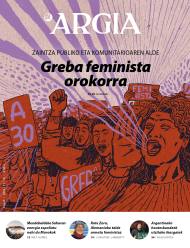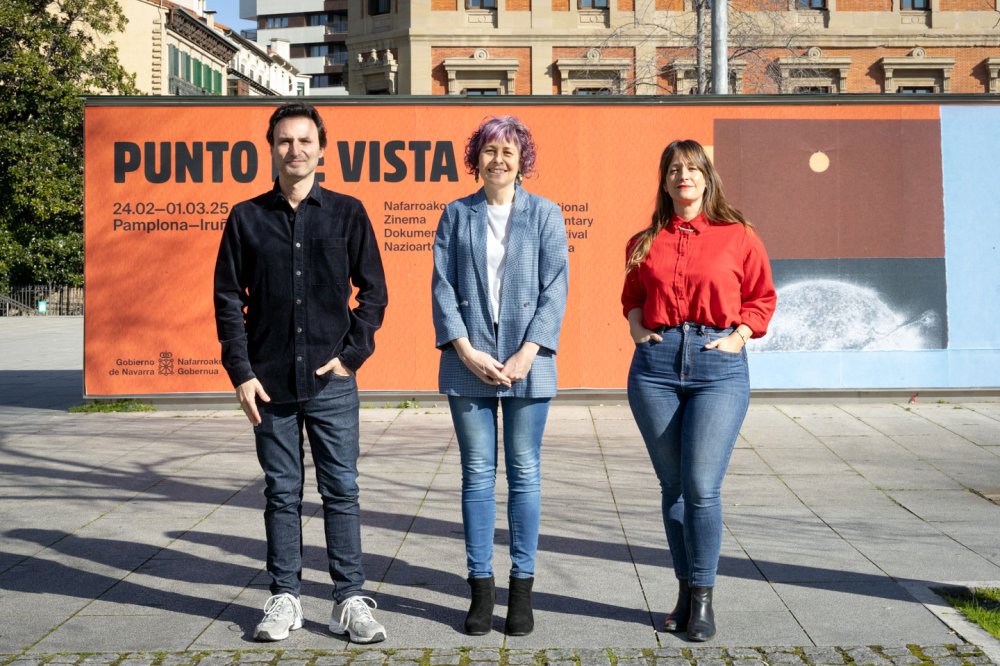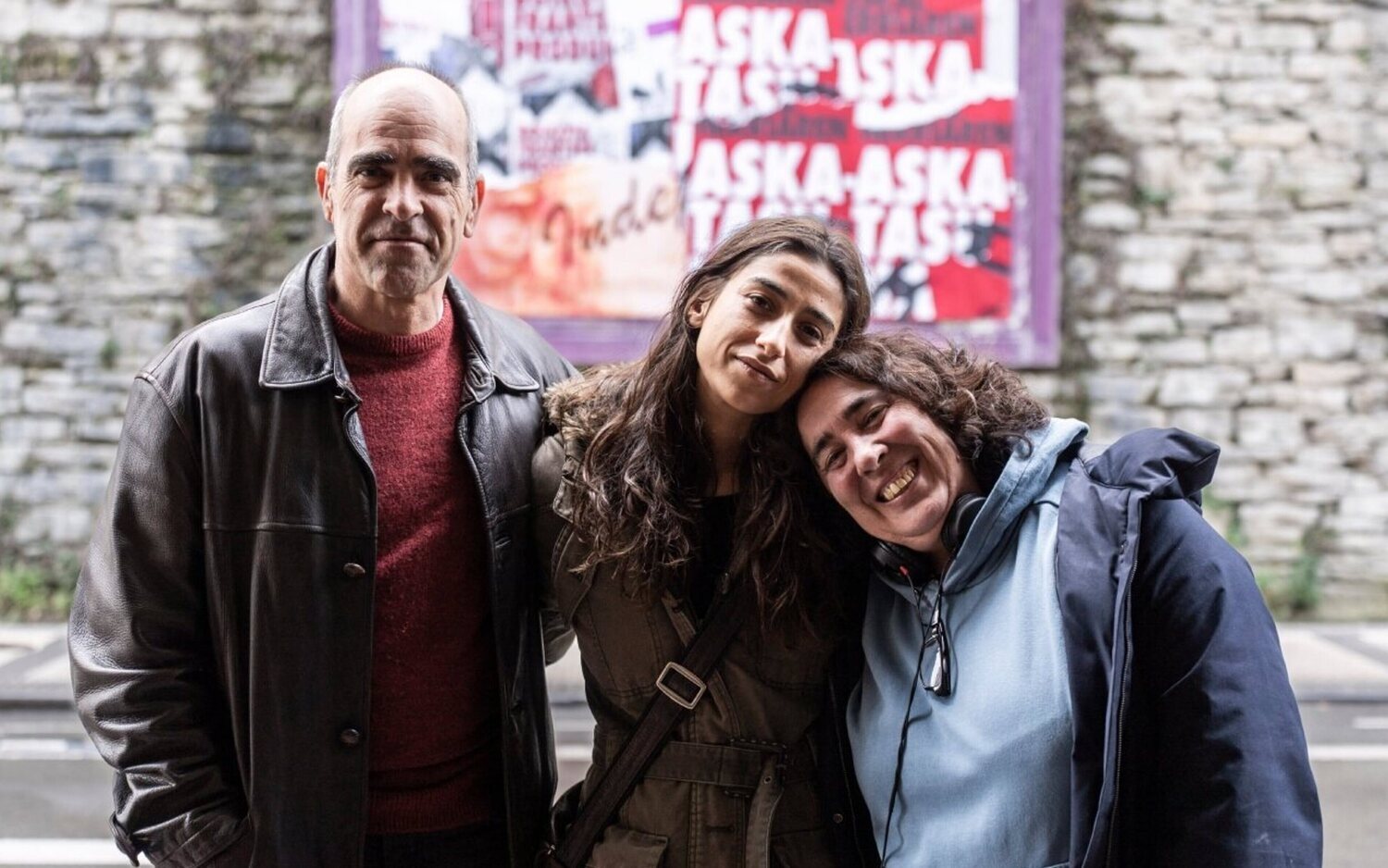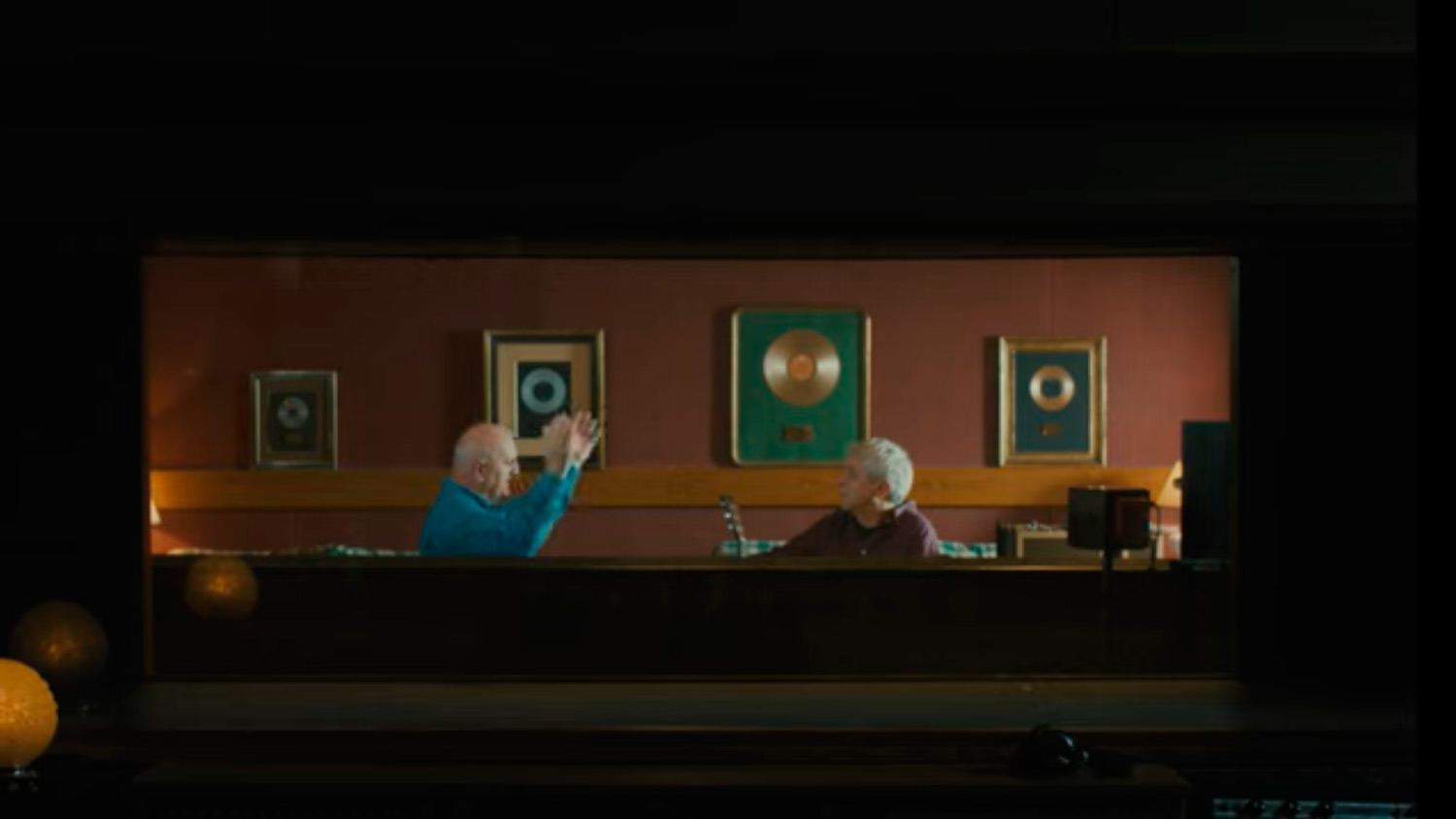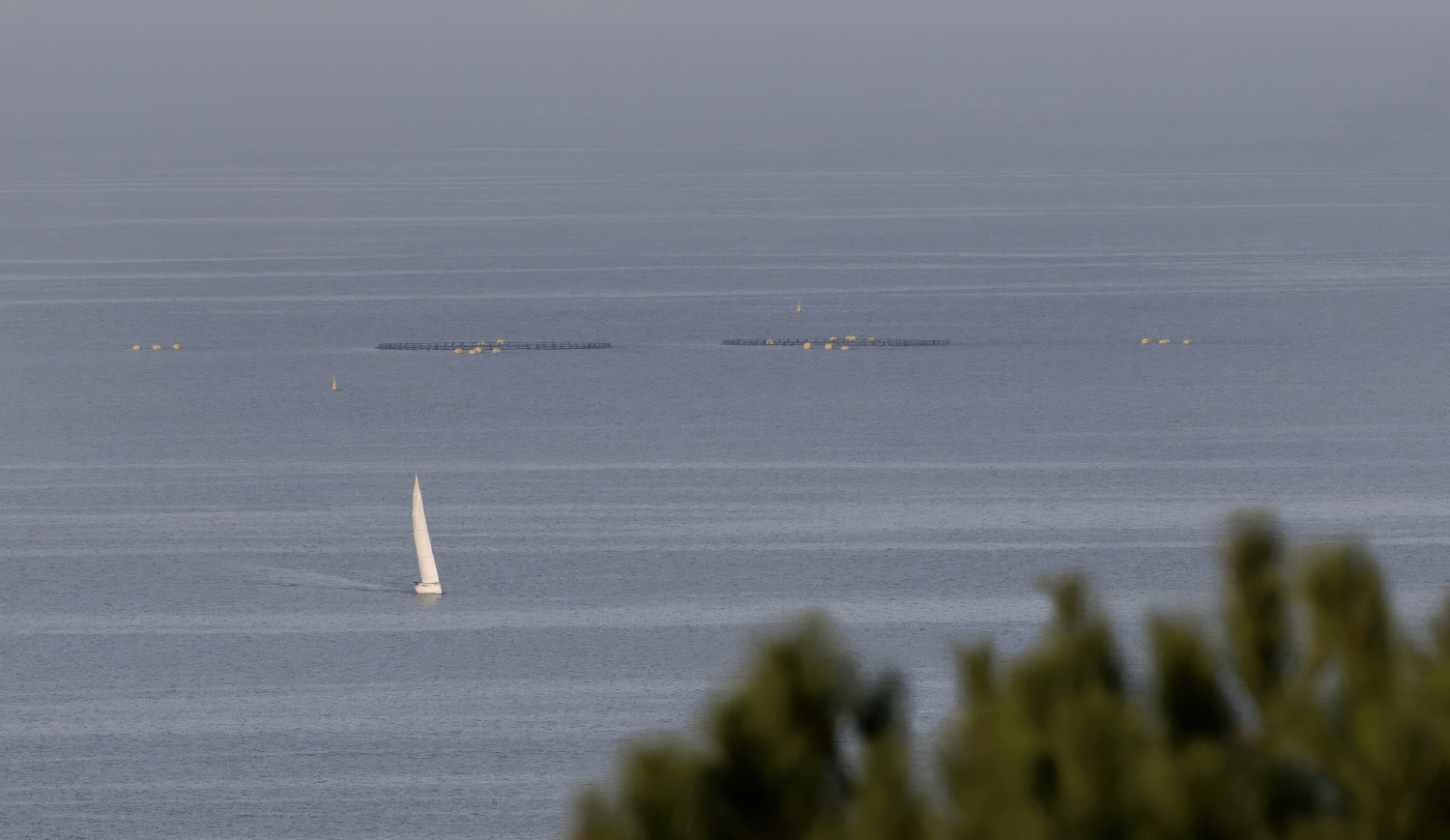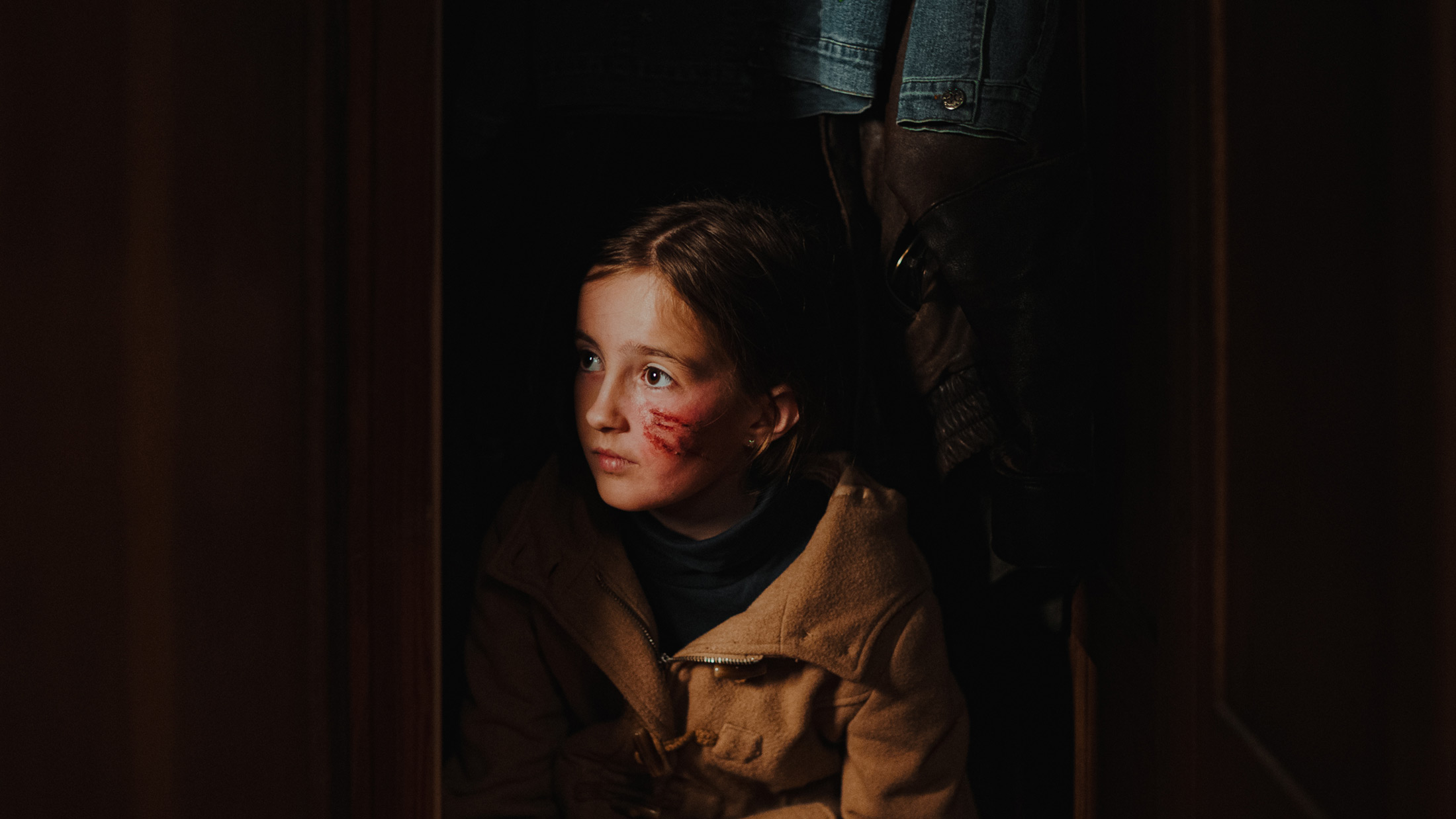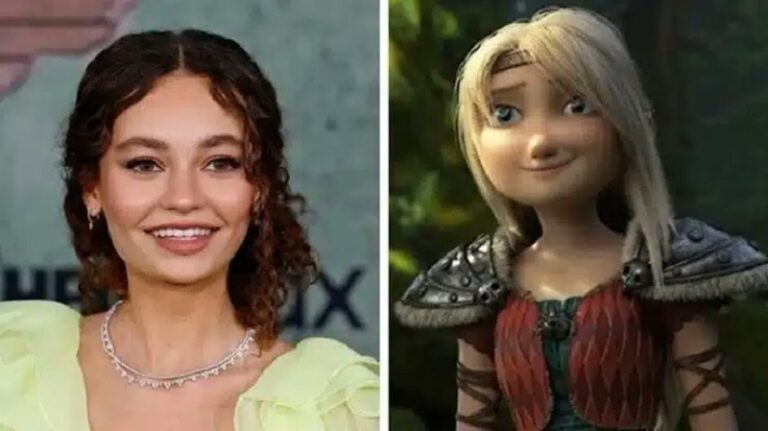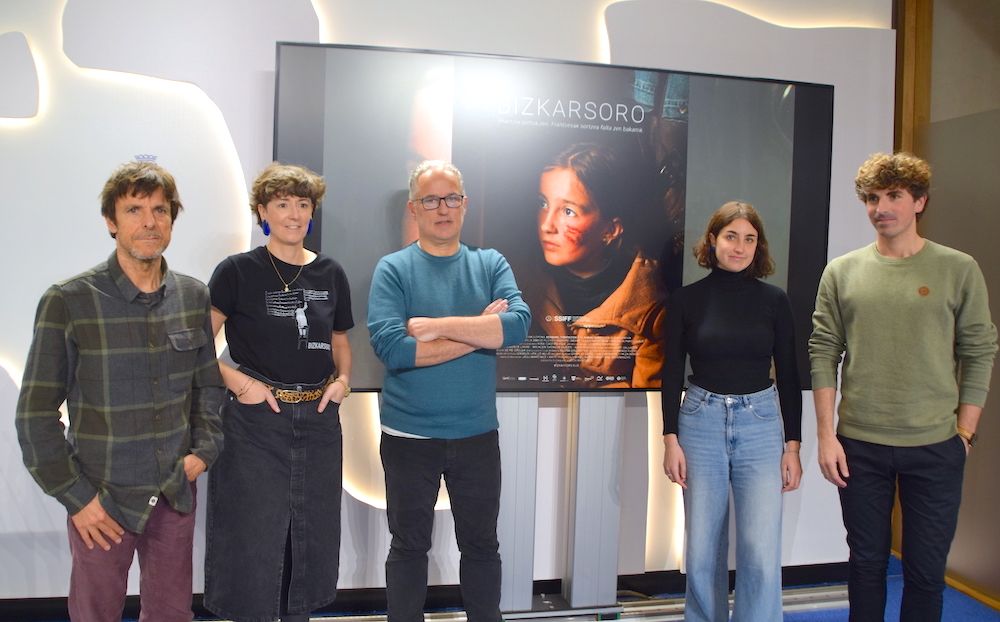"I've thought a lot about the Argentine aristocracy in decay."
- Martin Benchimol (Buenos Aires, Argentina, 1985) directed the film El Castillo (Castillo), winner of Horizontes Latinos in the last edition of the San Sebastian Film Festival. The films are starred by mother and daughter Justina and Alexia, who interpret themselves, possessing a wonderful castle lost in the Argentine countryside. The situation of the inherited castle imposes on the protagonists a hard life: bills to pay, roof holes... and the mother-daughter relationship flashes. The film reflects on the leap between fiction and reality, the possibility of elevating class and the close connection of both protagonists.

It seems essential to start with the question: How much does the movie of reality have and how much of fiction?
It's hard to say. I met Justina and Alexia while recording my previous documentary, looking for locations for that work. I saw Justina working around the castle and asked him who was the owner of the building. “You have it in front of your eyes,” he replied. So I usually say I didn't expect to make this film. So the film has a lot of reality. At first it had to be documentary, but once the recording started I found the observation insufficient. Strictly speaking, we went a little further from the documentary and delved into fiction.
However, we have recorded everyday scenes, anecdote reconstructions lived together and imaginable future scenarios. It is therefore difficult to say in which category the film can enter. It is a representation of the lives of the protagonists. They represent themselves.
Immersed in the game of the autofiquia, did the protagonists put any red line?
Justina said: “Show me what you want, but don’t record me smoking the pipe.”
Cigarettes do.
Cigarettes, no pepper. In general, they carried the recording process comfortably, they were happy in front of the cameras, and they liked the way they appeared in the film. In addition to the question of Pipa, I have another scene that they did not want to record, related to the death of a cow. The situation was very harsh for them, as Justina deeply loved the animals, which he did not want to represent in front of the camera.
.jpg)
He casually met Justina and Alexia. How was the relationship built and deepened until you were part of your intimacy?
In the early years, there were no cameras. We got to know each other naturally, and it took years until they started recording. The recording was nothing more than a continuation of that built relationship, and it was simple, it was they who represented their lives, always according to their desires, in matters that were comfortable.
There I see the boundary between organic and non-organic. If you look for the definition of the documentary word, for example on Wikipedia, you will read “the film that represents reality.” In this sense, my film does not intend to represent reality, it is impossible for me. I have the will to represent the link between the protagonists.
Was it clear from the beginning that I wanted to turn their lives into fictions?From the beginning I saw it clear that their real stories build a very strong narrative, but these powerful narratives didn't always appear on their own when the cameras turned on, and we had to create a context that
would break it. Then we began to approach fiction, because this exercise required the narrative cadence of fiction: the actors, the sequences, the development of the characters… I liked that melody of fiction, so we encouraged ourselves to add music.
It's that dream music that gives it amor-story meaning.
Every time we presented ourselves for calls, or had to prepare a text about the film, we described El Castillo as a “fable” or “love story.” One day I said: “Come on, let’s do, let’s put the music of love stories and let’s move forward.” It has worked perfectly.
In the tension between the magical and the real possibilities, music feeds the former. In this tension, on the one hand we have the property of the castle, which looks like a rise in class or a miraculous salvation. But we have a reality on the other side, very different. The film does not focus on the mere possibility of economic promotion, which would be magic, but on the adherence of classes that is maintained. Because from the beginning of the film Justina presents us in the position of owner, and more when the house is acquiring symbolically. However, this does not change their situation in reality.
.jpg)
The castle and its precarious situation reflect the situation of the Argentine aristocracy in the Decadence. Justina and Alexia must manage their consequences. The legacy castle, isn't it a poisoned gift?
In the process of creating the film, I've thought a lot about it. The film is based on the nonsense and contradiction of the class system and how heritage defines us from birth. It is clear in the case of Justina, who started working as a maid at the age of six and has not received any money for many years. His first salary was the money he received with this film.
"The property of the castle is not purely economic; class consciousness is at stake the nature of the construction"
In this respect, on the one hand, we have a fundamentally economic issue. If you do an account, someone can say: “Sell the house and buy something cheaper with the money for sale.” But the film goes beyond that mathematical aspect. The property of the castle is not purely economic. That is precisely the fundamental question I have to answer, the nature of the construction of class consciousness. It is not enough to inherit a castle that seems to have fallen from the sky, that changes nothing. The important thing is to symbolically fight the property of the house.
The main plot of the film is the mother-daughter relationship. However, from the anecdotes and the multiple possibilities of the autofiche that left the relationship that each year had matured, you could open several directions in the argument. How and at what time is the main plot determined among all the options?
First of all, I wanted the milestone of this film to be present. The film is traversed by an inheritance that actually refers to the past. But I didn't want me to look back at the movie, my intention was to focus on the present of the two leading women. This forced me to erase or summarize a lot of information. I thought you could also understand what wasn't explicitly told. That is why very little is said of the past. That Justina inherited the castle, nothing else.
In dramatic terms, everything was in the relationship between Justina and Alexia. So I put the focus on it, and I tried to do the opposite, instead of adding things to the plot. It only added the link between the two and what their development required, either the family visit, the mention of Justina's partner or the appearance of friends of Alexia.

In addition to the jump to fiction, it's the first movie you've directed alone. Was it a big challenge? It was
very interesting. In previous films I have been director of Pablo Aparo. We've been friends since adolescence, we had a rock band, and we learned cinema together. Recording the first job together, that brought the next one, and the next one… Now everyone goes with their jobs, but we go together, we have a producer together.
However, film is a capricious and very personal direction. With this film I have been able to delve into this more personal aspect. In addition, film is also an exercise in empathy, and that's very personal, how you relate to the characters.
On the eve of the interview, people from the Argentine film world met in Kursaal to denounce the promises of the reactionary candidates to the elections in your country, such as the closure of the Ministry of Culture or the INCAA Film Institute. What do you think is the attitude of the film world to such threats and to the normalization of fascist tendencies? As
he said, if you win these kind of neofascist and homophobic candidates, Argentine cinema is threatened... But not only that, but other rights will also be at risk. Beyond the economic punishment film can receive, what is at stake is the legitimacy of a discourse. His speech tells us that we should only care for what can be “a round and big business.” The starting point is extremely dangerous. In fact, the existence of films that move beyond the commercial point of view is of vital importance, leaving creation in the spotlight.
"Beyond the economic punishment film can receive, the legitimacy of the discourse of the [neofaxic candidates] is at stake."
It is therefore not just a question of this candidate winning or not, but of fighting for an idea that argues that trade is the only avenue of wonder. I think that's what we have to denounce, and create movies that override that idea. Our mission is to create movies that show that another way to drink is possible.
Until now, the film El Castillo has been presented at the Berlinale, Lima and Hong Kong Film Festivals, among others. In the latter you won the award for the best director. How is the reception of the public and your experience being?
The truth is, we're circling with quite a few suitcases. We come from Candem in the United States, now we are in San Sebastian, then Biarritz, then Iceland, Zurich… The tour is being great and it is surprising to note the echo left by our history. In fact, history can be a little weird, but people are falling in love with the connection between the two protagonists.
Geroz eta ekoizpen gehiagok baliatzen dituzte teknologia berriak, izan plano orokor eta jendetsuak figurante bidez egitea aurrezteko, izan efektu bereziak are azkarrago egiteko. Azken urtean, dena den, Euskal Herriko zine-aretoak gehien bete dituztenetako bi pelikulek adimen... [+]
Otsailaren 24tik eta martxoaren 1era bitartean, astebetez 60 lan proiektatuko dituzte Punto de Vista zinema dokumentalaren jaialdian. Hamar film luze eta zazpi labur lehiatuko dira Sail Ofizialean; tartean mundu mailako lau estreinaldi eta Maddi Barber eta Marina Lameiro... [+]
A conference for architects has just been held in Madrid to discuss the crisis of the professional architect. They have distinguished the traditional and contemporary way of being an architect. What is traditional? From the epic architect who appears in The Brutalist, where... [+]
Itoiz, udako sesioak filma estreinatu dute zinema aretoetan. Juan Carlos Perez taldekidearen hitz eta doinuak biltzen ditu Larraitz Zuazo, Zuri Goikoetxea eta Ainhoa Andrakaren filmak. Haiekin mintzatu gara Metropoli Foralean.









